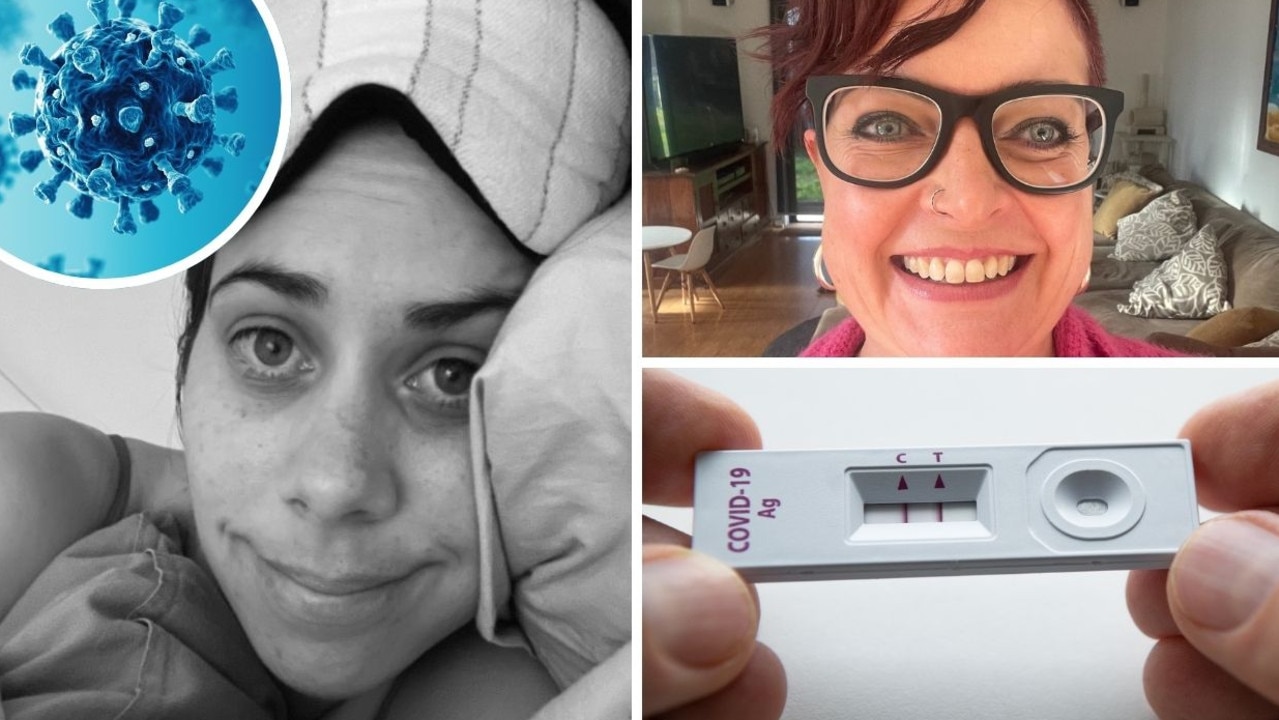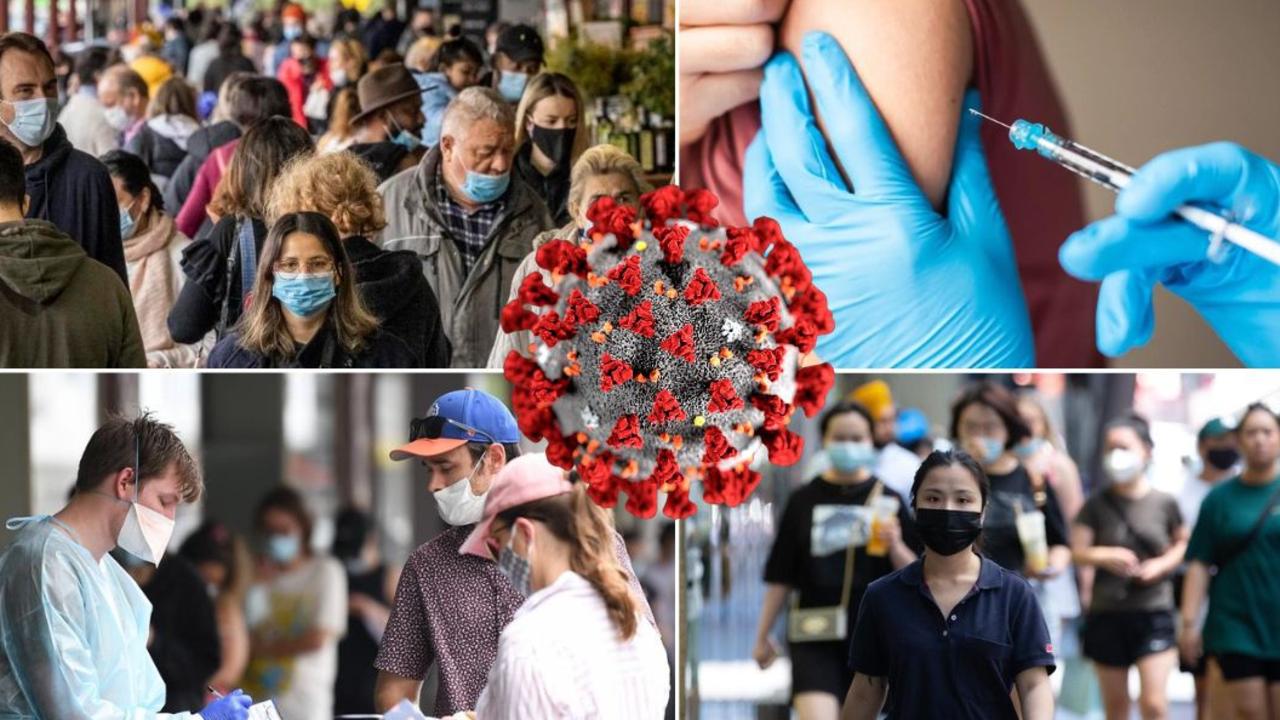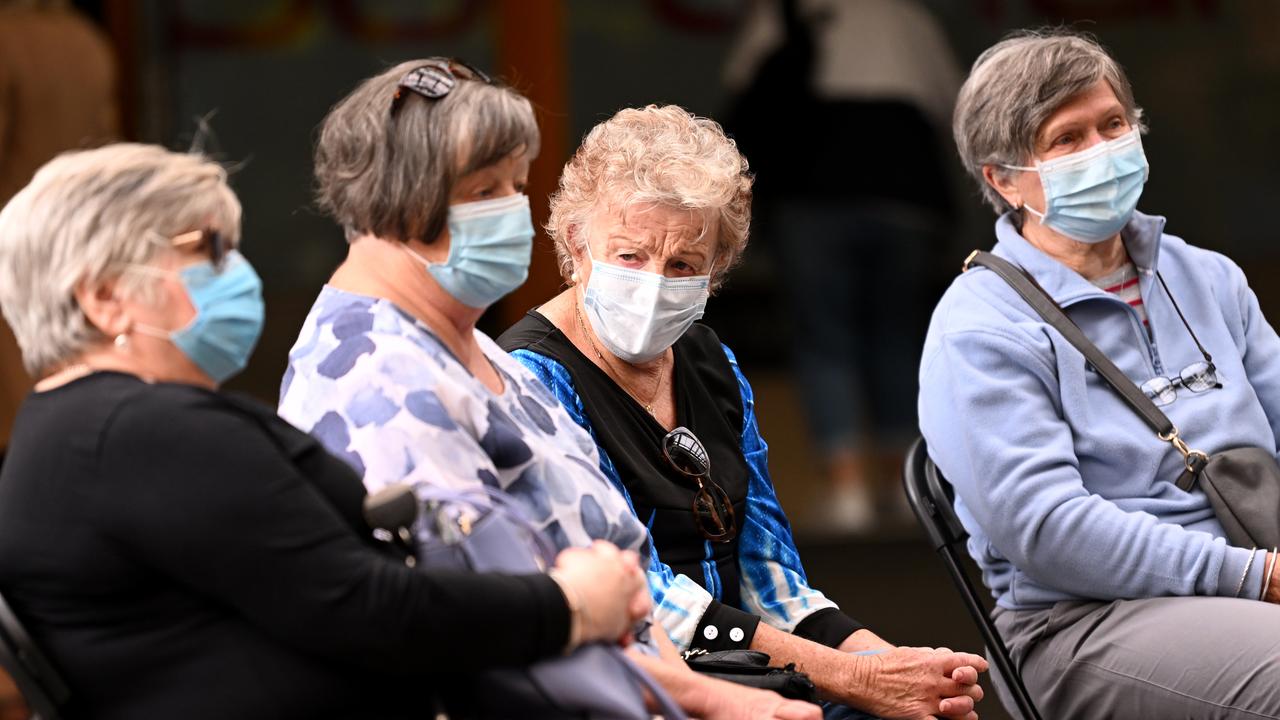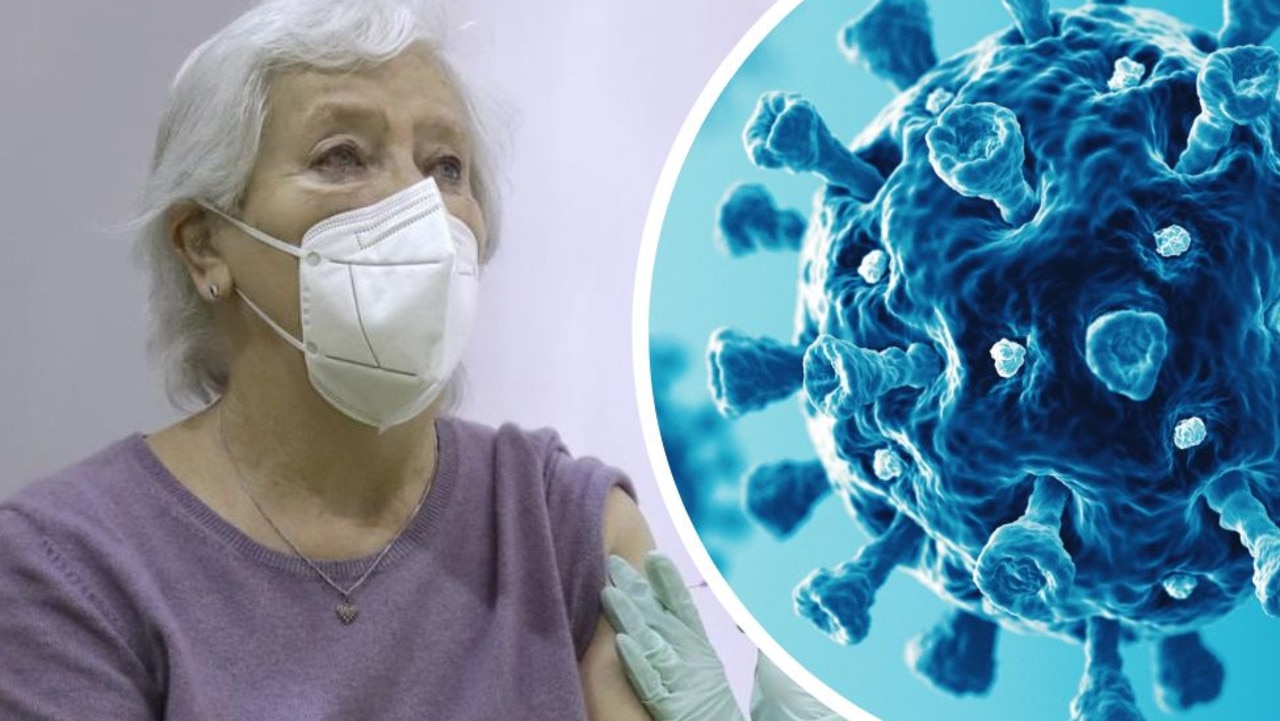US lifts restrictions for international travellers who show proof of vaccination
The United States will open its land and air borders to vaccinated visitors, granting access to millions, as the FDA approved more boosters.
Coronavirus
Don't miss out on the headlines from Coronavirus. Followed categories will be added to My News.
The United States has announced that it will allow entry to foreign travellers who are fully vaccinated against Covid-19, by both land and air, starting on 8 November.
“This policy is guided by public health, stringent, and consistent,” tweeted White House assistant press secretary Kevin Munoz in announcing the news on Friday, local time.
In an effort to slow the spread of coronavirus, US borders were closed after March 2020 to travellers from much of the globe, including the European Union, Britain and China, India and Brazil. Overland visitors from Mexico and Canada were also banned.
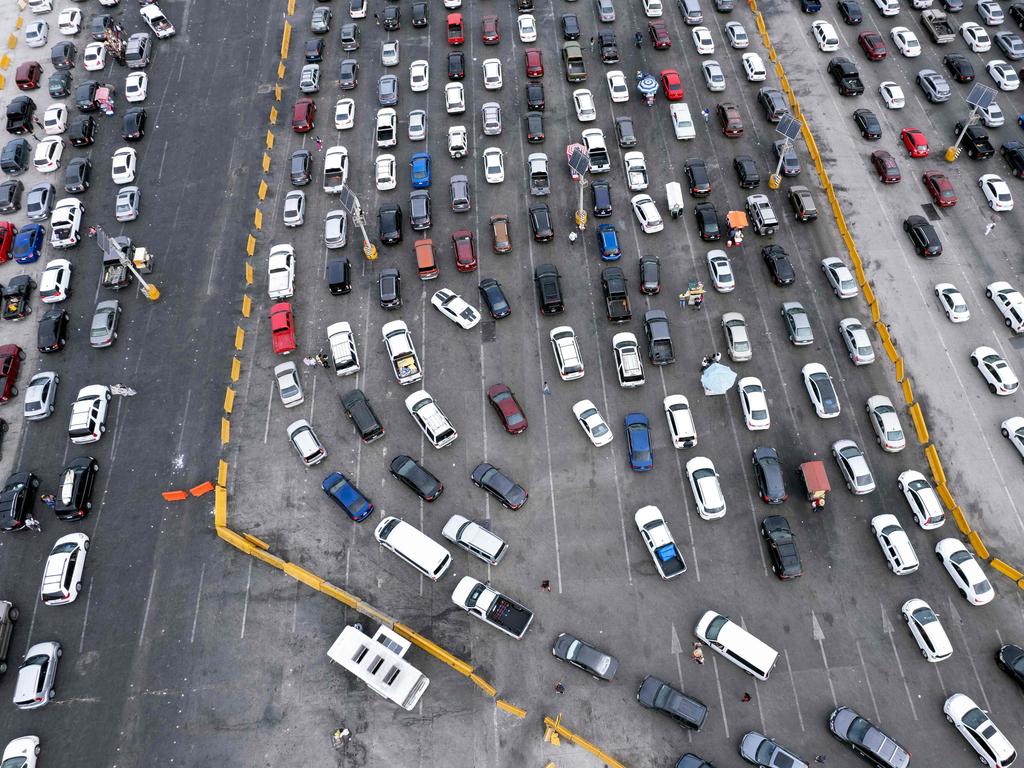
Under the new policy that was outlined last month, vaccinated air passengers will need to be tested within three days before travel, and airlines will be required to put in place a contact tracing system.
Earlier this week, a White House source said the land border opening would happen in two phases.
Initially, vaccines will be required for “non-essential” trips such as visiting family or for tourism – although unvaccinated travellers will still be allowed into the country for “essential” trips as they have been for the last year and a half.
A second phase beginning in early January 2022 will require all visitors to be fully vaccinated to enter the United States by land, no matter the reason for their trip.
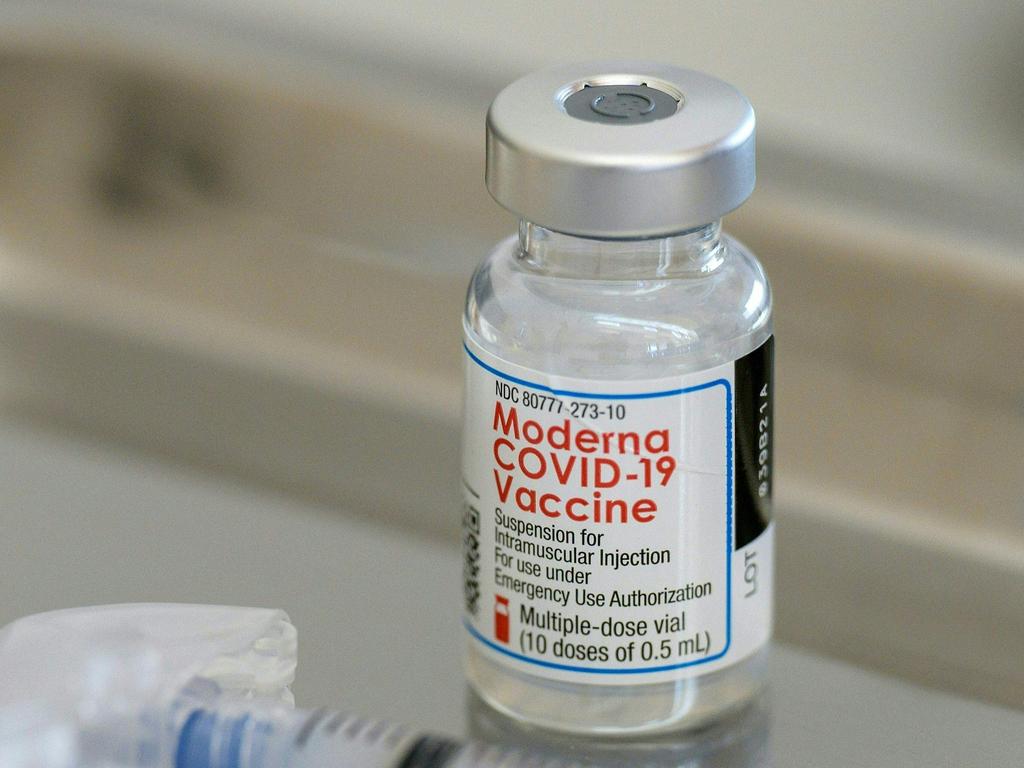
US APPROVES MORE BOOSTER SHOTS
An expert committee has recommended a booster dose of Moderna’s anti-Covid vaccine in the United States for certain at-risk groups, a month after making a similar decision for the Pfizer shot.
The opinion submitted by the advisory committee of the Food and Drug Administration -composed of researchers, epidemiologists and infectious disease experts - is not binding, but it is rare for the FDA not to follow it.
After a day of debate, the experts decided to authorise a booster dose of Moderna for three categories of people: the over-65s, people aged between 18 and 64 who are at a higher risk of developing a severe version of the coronavirus, and those whose work may involve frequent exposure to the virus such as supermarket workers, health workers, prisoners and people in homeless shelters.
The same definitions were adopted for the Pfizer booster.
The booster can be administered six months after the second injection of Moderna’s vaccine. The dosage is 50 micrograms, which is half the dosage of the initial shots.
A Moderna representative told the panel the booster would help combat the Delta variant, at a time when vaccine effectiveness has been observed to decline over time against infection and mild cases of the disease, even though it remains effective against severe cases.
The committee met again on Friday to deliver its verdict on a booster dose for the Johnson & Johnson vaccine, endorsing doses of a single shot booster, to be offered as early as two months after the initial immunisation, but that people may also wait six months.
AZ UNVEILS ‘ANTI-COVID’ COCKTAIL
Europe’s drug watchdog has started a real-time review of AstraZeneca’s anti-Covid cocktail, the first “preventive” jab – other than vaccines – against coronavirus.
The decision by the human medicines committee of the European Medicines Agency (EMA) to begin the rolling review was based on early results from clinical studies, the regulator said on Thursday.
The move comes after the Anglo-Swedish drugmaker this week said trials showed that the drug, made from a combination of two monoclonal antibodies, reduced severe Covid-19 symptoms and deaths.
While vaccines rely on an intact immune system to develop targeted antibodies and infection-fighting cells, AstraZeneca’s biotech compound, to be branded as Evusheld, contains lab-made antibodies designed to “linger in the body for months to contain the virus in case of an infection”.
The medicine has been proven to work among people who are not infected and was also shown this week to save lives and prevent severe disease when given as treatment within a week of first symptoms.
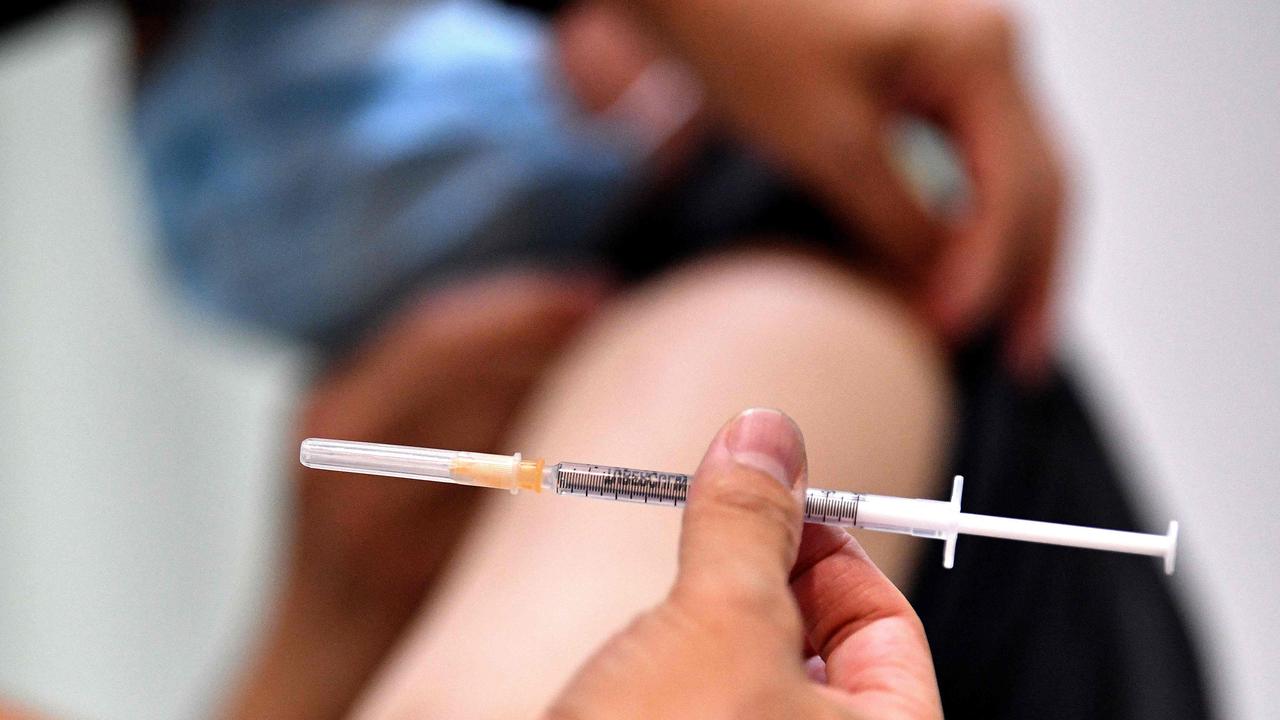
“EMA will evaluate more data on the quality, safety and effectiveness of the medicine as they become available,” the European Union‘s (EU) watchdog said, adding the review would continue until AstraZeneca can formally submit an application for approval.
It can take several months between the start of a rolling review by the EMA and any eventual green light.
Monoclonal antibodies — which recognise a specific molecule of the target virus or bacteria — are synthetic versions of natural antibodies.
They are administered to people already infected, to make up for deficiencies in the immune system. This is different from a vaccine, which stimulates the body to produce its own immune response.
AstraZeneca’s separate Covid vaccine is one of the four jabs currently approved for the EU.
The company said on Monday that it had seen “positive results” from the new drug, also known as AZD7442, with a “statistically significant reduction in severe Covid-19 or death” in non-hospitalised patients with mild-to-moderate symptoms.
The trial involved 903 participants and 90 per cent of them were people at high risk of progression to severe Covid-19.
COVID PANDEMIC UNLEASHES ‘ANCIENT’ DISEASE
Tuberculosis is on the rise again globally for the first time in a decade, linked to disruptions in access to healthcare because of the Covid pandemic, the World Health Organisation said Thursday.
The setback has erased years of progress toward tackling the curable disease, which affects millions of people worldwide.
“This is alarming news that must serve as a global wake-up call to the urgent need for investments and innovation to close the gaps in diagnosis, treatment and care for the millions of people affected by this ancient but preventable and treatable disease,” WHO chief Tedros Adhanom Ghebreyesus said in a statement.
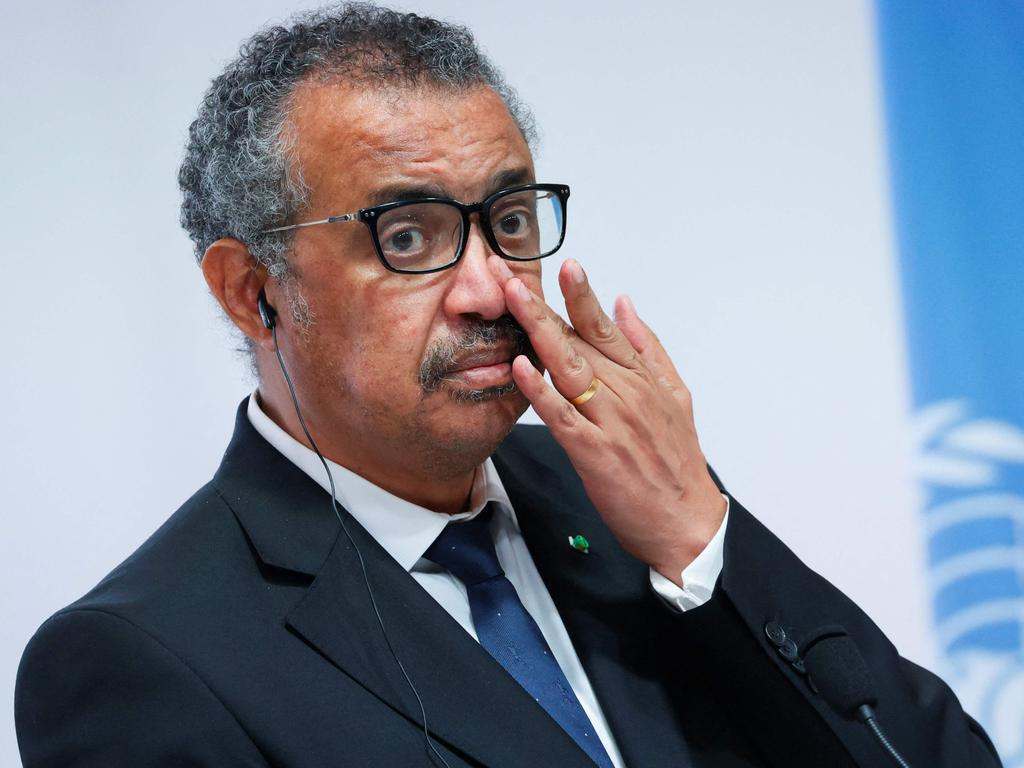
In its annual TB report for 2020, the WHO said progress toward eradicating the disease has been made worse thanks to a growing number of cases going undiagnosed and untreated.
The organisation estimates that around 4.1 million people have tuberculosis but have not been diagnosed or officially declared, up sharply from 2.9 million in 2019.
The Covid-19 pandemic has made the situation worse for people with tuberculosis, as health funds have been redirected toward tackling coronavirus and people have struggled to access care because of lockdowns.
There was also a drop in the number of people seeking preventive treatment, it added, from 2.8 million people in 2020, down 21 per cent from 2019.
“This report confirms our fears that the disruption of essential health services due to the pandemic could start to unravel years of progress against tuberculosis,” Mr Tedros said.
Some 1.5 million people died from TB in 2020, including 214,000 among HIV positive people, according to the report.
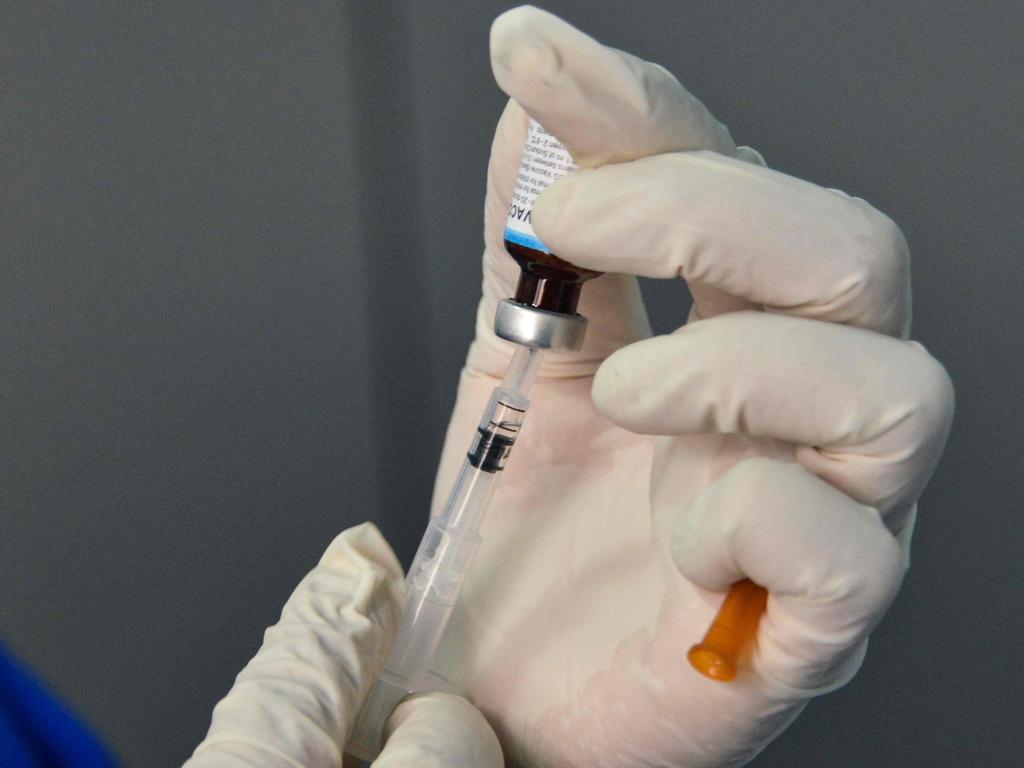
That was up from 1.2 million in 2019, 209,000 of them HIV positive. The increase in the number of TB deaths occurred mainly in the 30 countries with the highest burden of tuberculosis, it added.
Tuberculosis is the second deadliest infectious disease after Covid-19, caused by a bacteria that most often affects the lungs.
Like Covid, it is transmitted by air by infected people, for example by coughing.
Most TB cases occur in just 30 countries, many of them poorer nations in Africa and Asia, and more than half of all new cases are in adult men. Women account for 33 per cent of cases and children 11 per cent.
The WHO’s aim is to reduce deaths from TB by 90 per cent, and the incidence rate by 80 per cent by 2030 compared to 2015, but the latest figures threaten to jeopardise the strategy, it said.
The number of people developing the disease and dying from it could be “much higher in 2021 and 2022”.
‘HIGHLY POTENT’ ANTIBODY MAY BE NEW WEAPON IN VIRUS BATTLE
Scientists say they have discovered a “highly potent” Covid-19 antibody that “neutralises” variants of the virus, including the deadly Delta strain.
The UK’s Health Security Agency chief executive Dr Jenny Harries this week said the dominance of the Delta variant globally has seen other coronavirus variants “become extinct”, but warned we still need to “stay alert”.
Now it looks like science may have discovered a new weapon in the battle against the virulent variant.
The Swiss Federal Institute of Technology Lausanne (EPFL), who made the breakthrough, said the antibody “is one of the most powerful” identified so far against SARS-CoV-2.
“Scientists at Lausanne University Hospital (CHUV) and EPFL have discovered a highly potent monoclonal antibody that targets the SARS-CoV-2 spike protein and is effective at neutralising all variants of concern identified to date, including the delta variant,” EPFL said in a statement.
“The newly identified antibody was isolated using lymphocytes from COVID-19 patients enrolled in the ImmunoCoV study being carried out by CHUV’s Service of Immunology and Allergy.
“The antibody blocks the spike protein from binding to cells expressing the ACE2 receptor, which is the receptor the virus uses to enter and infect lung cells.
“That means the antibody halts the viral replication process, enabling a patient’s immune system to eliminate SARS-CoV-2 from the body.
The EPFL added that the new antibody is designed to have a lasting effect in humans.
“A typical unaltered antibody provides protection for up to three to four weeks,” they said. “But this new one can protect patients for four – six months,” they said.
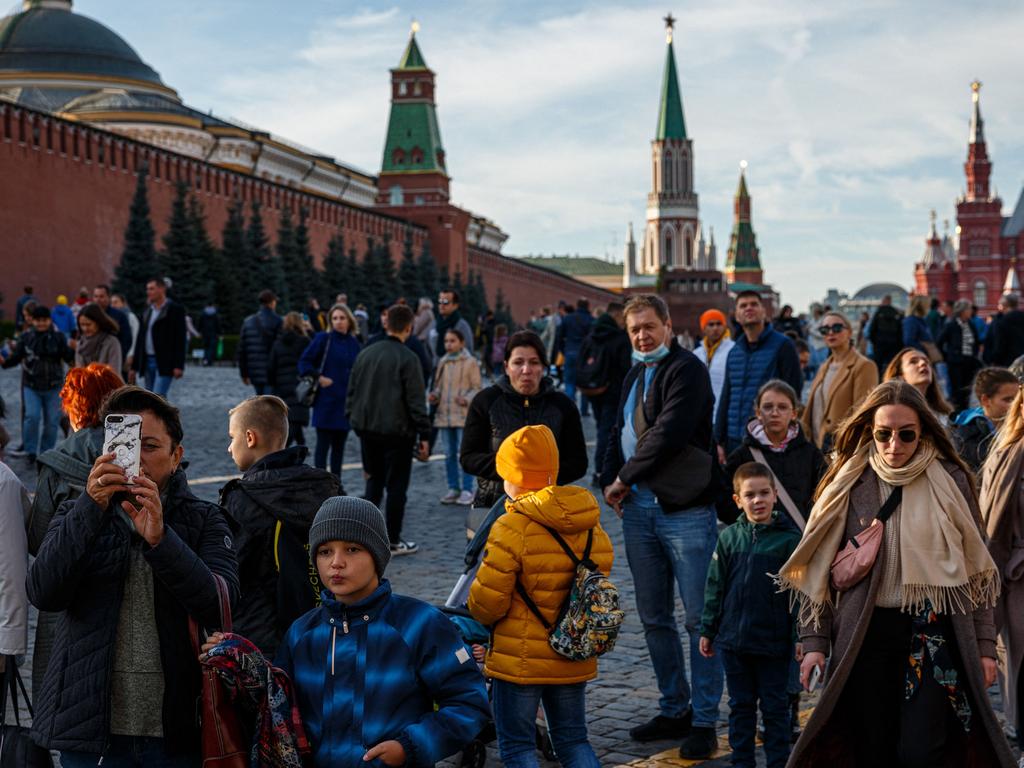
RUSSIA REPORTS RECORD DAILY INFECTIONS AND DEATHS
Russia has reported a pandemic high for both new coronavirus infections and fatalities over 24 hours, with the country’s vaccination drive at a snail’s pace and few restrictions in place.
Officials registered 31,299 new infections and 986 deaths from Covid-19 over 24 hours, bringing Russia’s total fatalities to 220,315 – the highest toll in Europe.
The surging outbreak has come with just 31 per cent of Russians fully inoculated, according to the Gogov website, which tallies Covid-19 data from the regions.
A lack of tough restrictions has allowed the virus to spread, though a number of regions have reintroduced QR codes for access to public places.
The Kremlin has baulked at reintroducing major restrictions despite calling the country’s vaccination rate “unacceptably” low, saying this week authorities have to ensure “the economy continues working.”
But Kremlin spokesman Dmitry Peskov again ruled out a lockdown and said that authorities have to “continue to explain to people that it is necessary to be vaccinated”.
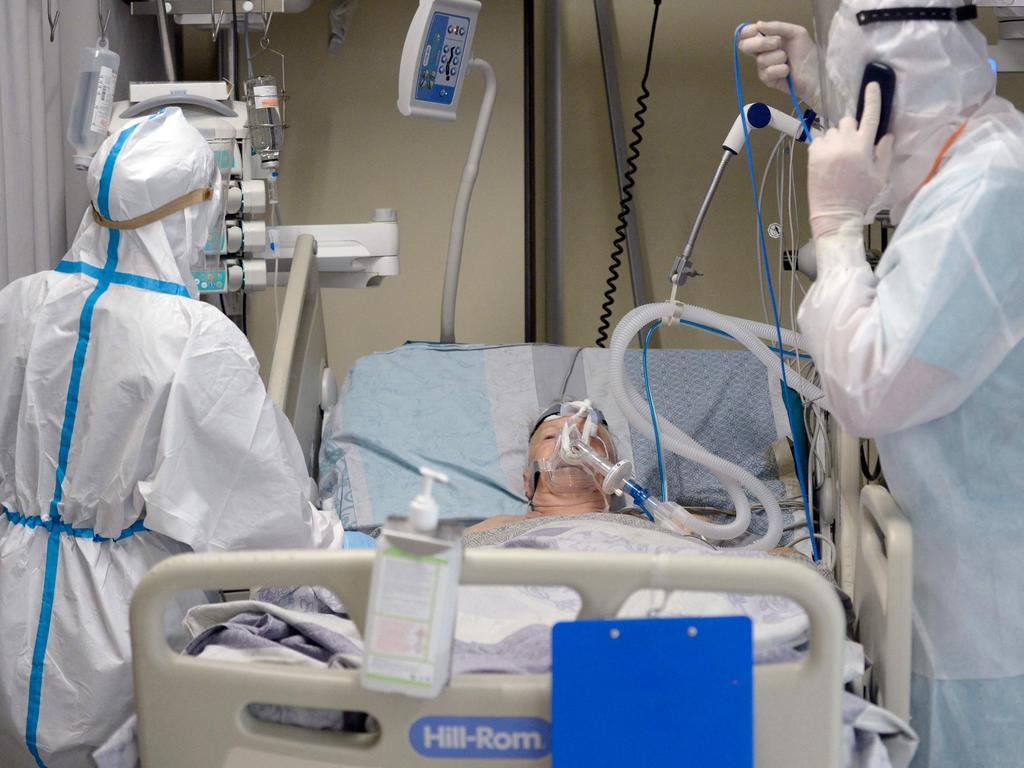
“It’s irresponsible not to get the vaccine,” he told reporters but added that Russia’s healthcare system was prepared for the onslaught in coronavirus patients, saying that it is not “overwhelmed”.
“The entire medical infrastructure is mobilised,” he said.
Health Minister Mikhail Murashko for his part blamed the growing spread on the “behaviour” of Russians and called on them to get vaccinated.
“If we do not introduce general restriction measures now we run the risk of a continuing rise in cases,” he was cited by state news agency TASS as saying.
He did not, however, specify possible restrictions.
Independent polls show that more than half of Russians do not plan to get a shot.
US TO OPEN BORDERS TO FULLY VACCINATED
The United States will open its land borders with Mexico and Canada in early November to non-essential travellers who are fully vaccinated, the White House says.
As of early November, non-essential travellers such as those going on holiday or visiting relatives will be allowed to enter the US via land borders as long as they can show proof of Covid-19 vaccination to Customs and Border Protection officials.
The decision will relax bans that have been in place for over 18 months.
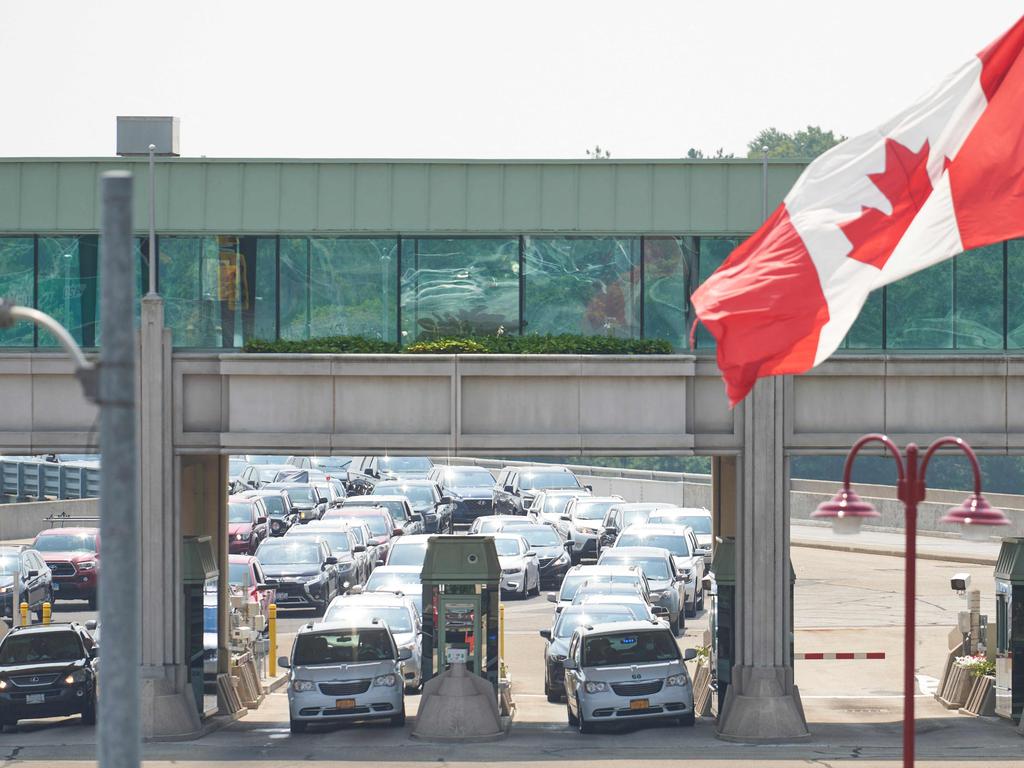
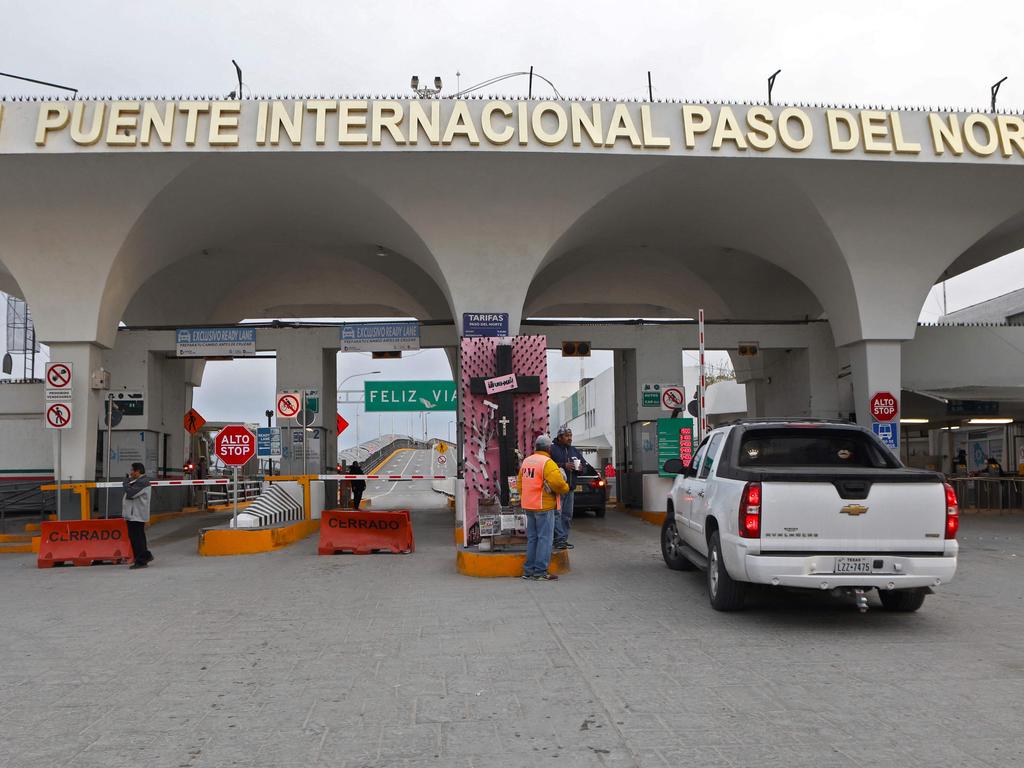
A similar, previously announced policy will also take effect for air travellers entering the US.
As of early 2022 essential travellers such as transport workers who must drive across borders for work will also need to be fully vaccinated.
Previously, only “essential” travel had been allowed across the Canada-US and Mexico-US borders.
It comes as coronavirus cases are declining in the US but the number of new infections in children remains “exceptionally high”, with 148,222 cases reported in the week ending 7 October, according to the American Academy of Pediatrics.
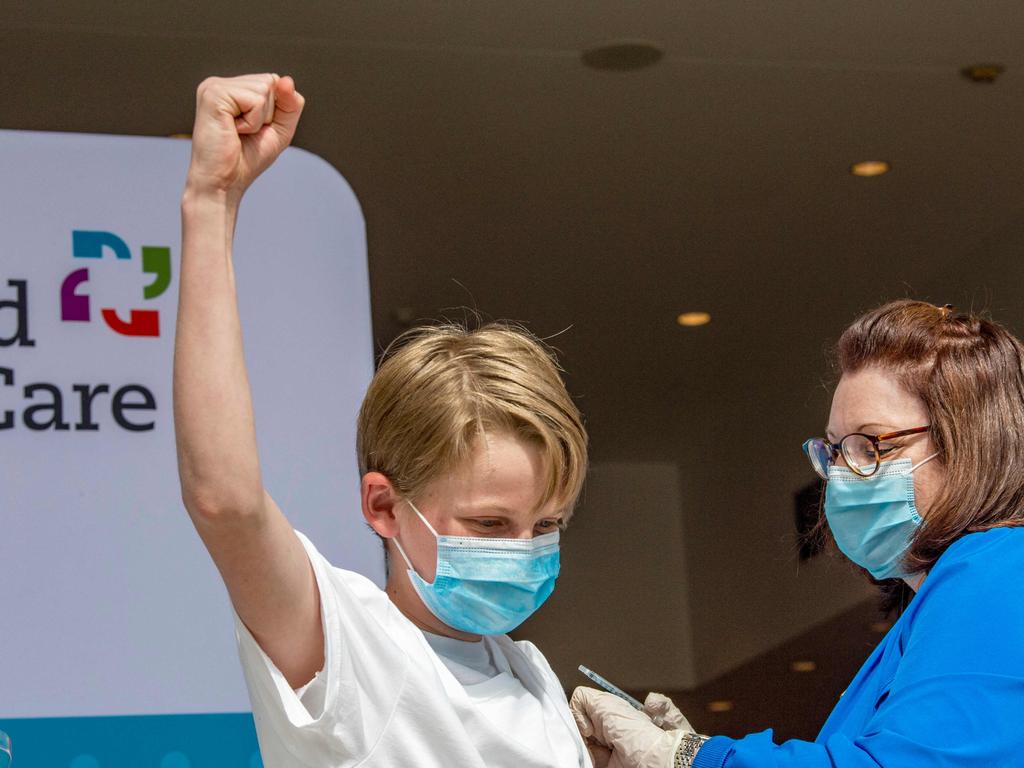
The AAP said children represented nearly a quarter of weekly reported cases and remain a vulnerable group because many are still not vaccinated.
While US Covid-19 cases, hospitalisations and deaths have been dropping, the nation is still reporting around 1,500 deaths per day, data from Johns Hopkins University shows, and the infection rate is still well above what’s needed to get control of the pandemic.
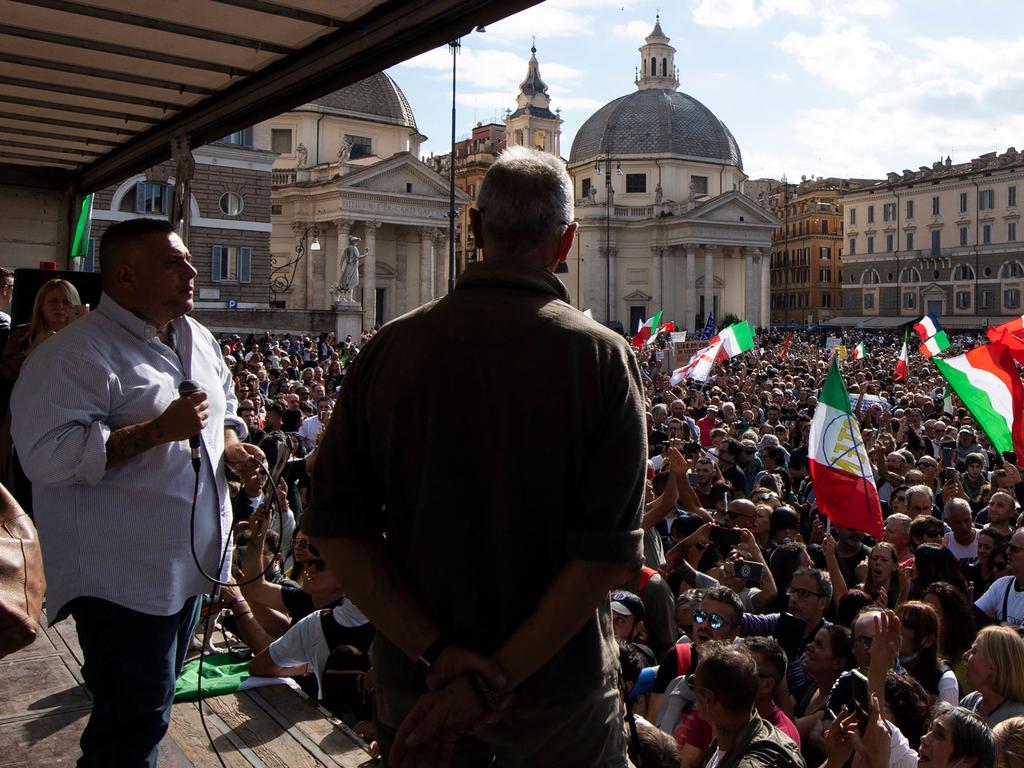
FEARS OF ‘CHAOS’ AS ITALY IMPLEMENTS COVID PASS
Italy will require all workers to show a coronavirus health pass from Friday, one of the world’s toughest anti-Covid regimes that has already sparked riots and which many fear will cause “chaos”.
More than 85 per cent of Italians over the age of 12 have received at least one shot of a Covid-19 vaccine, making them eligible for the so-called Green Pass certificate.
But according to various estimates, about 2.5 million of the country’s 23 million workers are unvaccinated, and risk being denied access to the workplace from October 15.
“You have no idea of the chaos that we will have in firms,” the president of the heavily industrialised northern Veneto region, Luca Zaia, said recently.
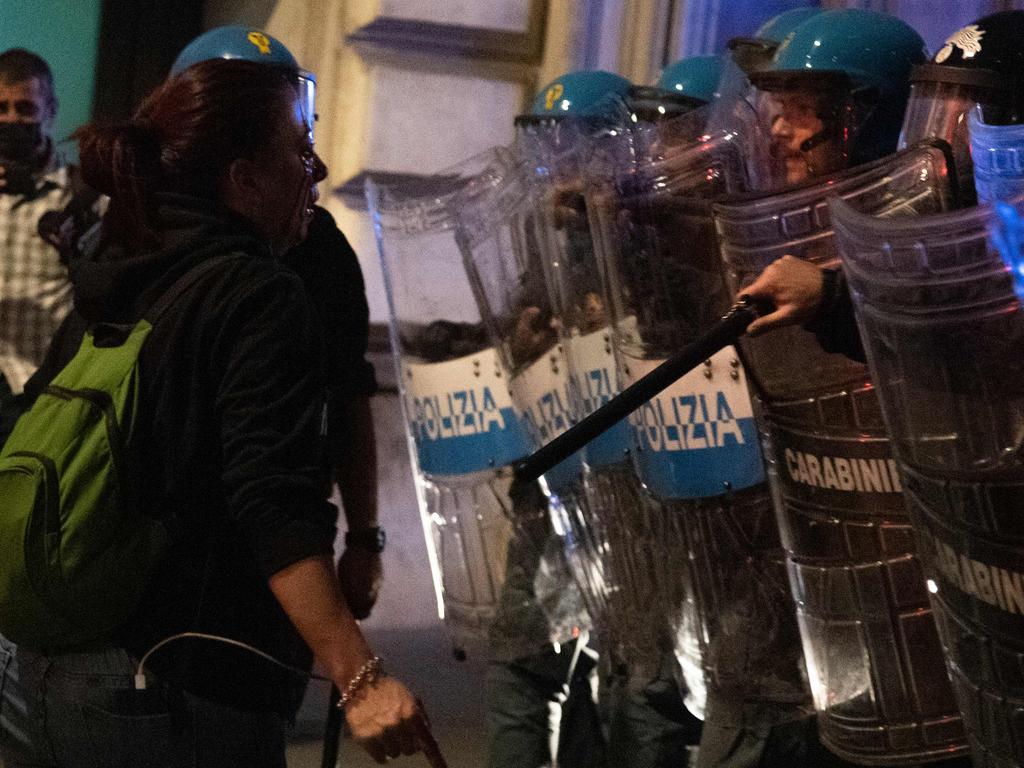
Unvaccinated workers can still get a Green Pass by getting tested for coronavirus or with a certificate of recovery, if they contracted the virus within the previous six months.
If they instead opt to qualify though testing, they have to take them at their own expense, and repeat them every 48 hours.
Mr Zaia suggested there was not enough testing capacity to meet potential demand, raising the prospect of mass absenteeism from work.
“The entrepreneurs I talk to are very worried,” he said.
Green passes are already required for teachers and other school workers, and for other activities such as eating indoors in bars and restaurants, or going to the cinema, museums and football games.
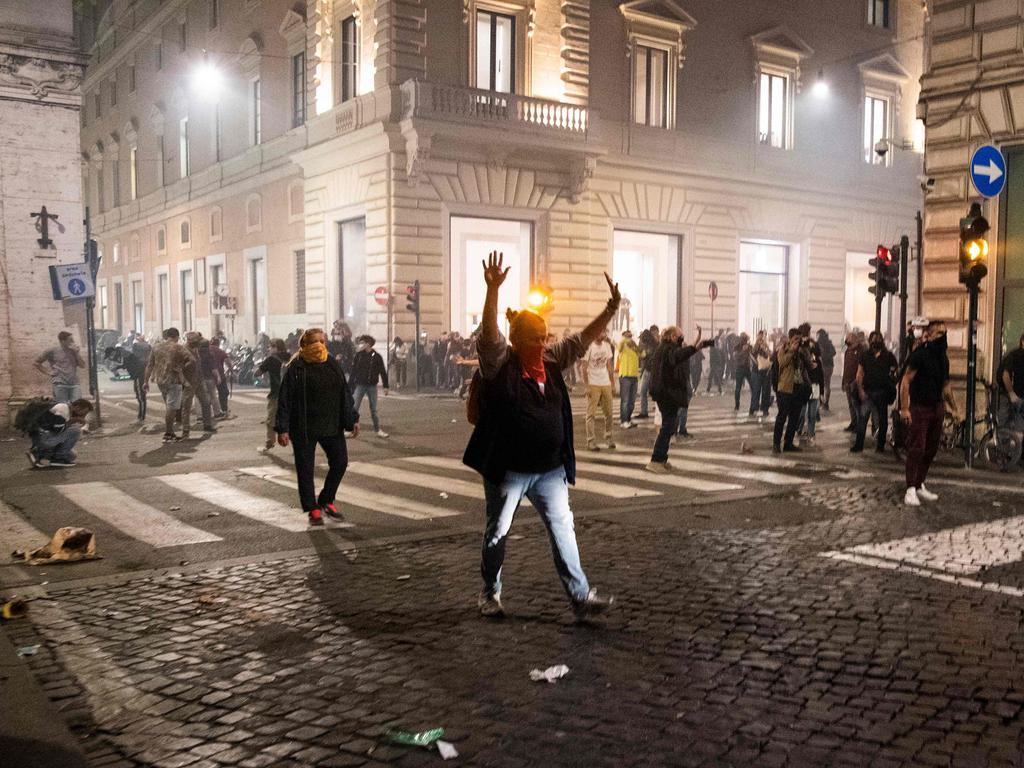
But they are not popular, at least among a sizeable minority, as shown by last Saturday’s riots in Rome, where an anti-pass demonstration degenerated into an assault on the CGIL trade union building led by the Neo-Fascist Forza Nuova party.
Anyone caught in the workplace without a Green Pass risks fines ranging from 600 to 1,500 euros (A$1100-2670).
And those who fail to turn up for work because they don’t have one face suspension on no pay — but cannot be fired.
Meanwhile, employers can be fined 400-1,000 euros (A$628-A$1570) for not checking if their staff comply with the rules.
Italian Prime Minister Mario Draghi opted for compulsory Covid passes last month in a bid to prevent further lockdowns and support Italy’s recovery from a record 8.9-per cent recession last year.
The measure, which follows a similar initiative introduced in Greece last month, was also intended to boost vaccination rates.
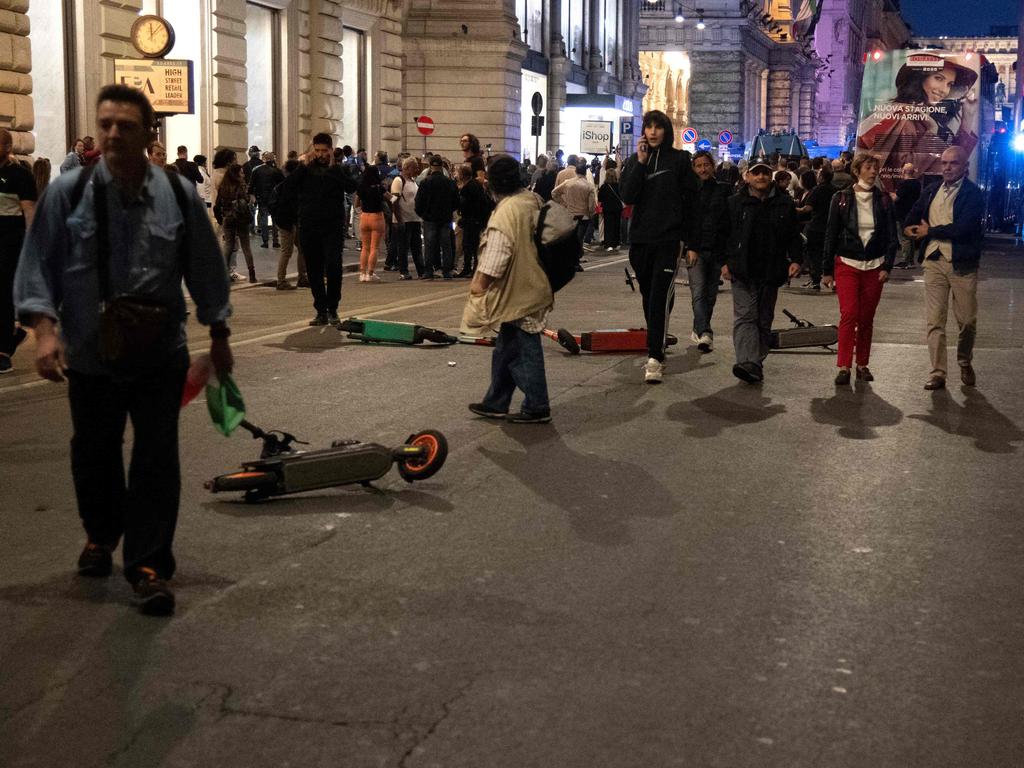
Business lobby Confindustria has been among the staunchest backers of the Green Pass in Italy, one of the European countries hardest hit by coronavirus with more than 130,000 deaths.
The focus is on “creating workplaces that are as safe as possible … because it is the only way to ensure public health and economic recovery,” vice president Maurizio Stirpe told the Corriere della Sera newspaper.
Trade unions, on the other hand, have been sceptical. They first called for a blanket rule forcing all Italians to get jabbed, arguing that option would have avoided discrimination between vaccinated and unvaccinated workers.
Originally published as US lifts restrictions for international travellers who show proof of vaccination





